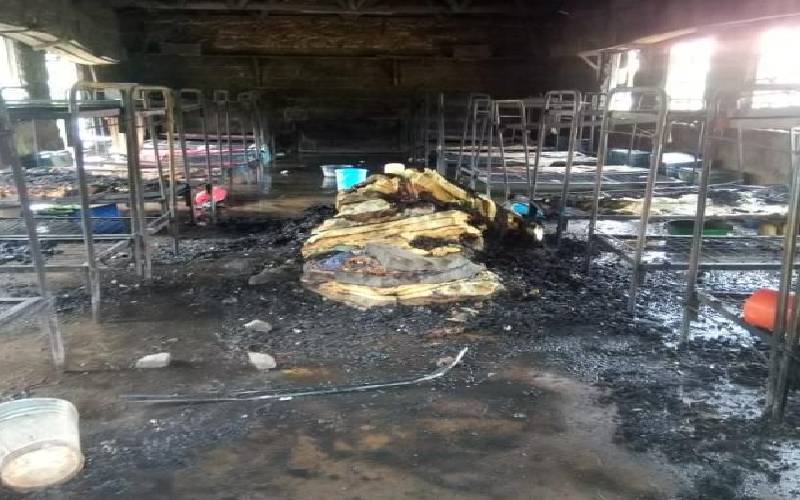×
The Standard e-Paper
Home To Bold Columnists

Kiambere Mixed Secondary School dormitory that was razed by fire recently. [Muriithi Mugo, Standard]
Since schools resumed physical learning a few weeks ago, several cases of indiscipline have been reported across the country.